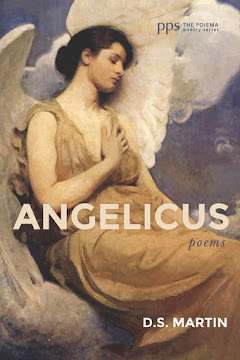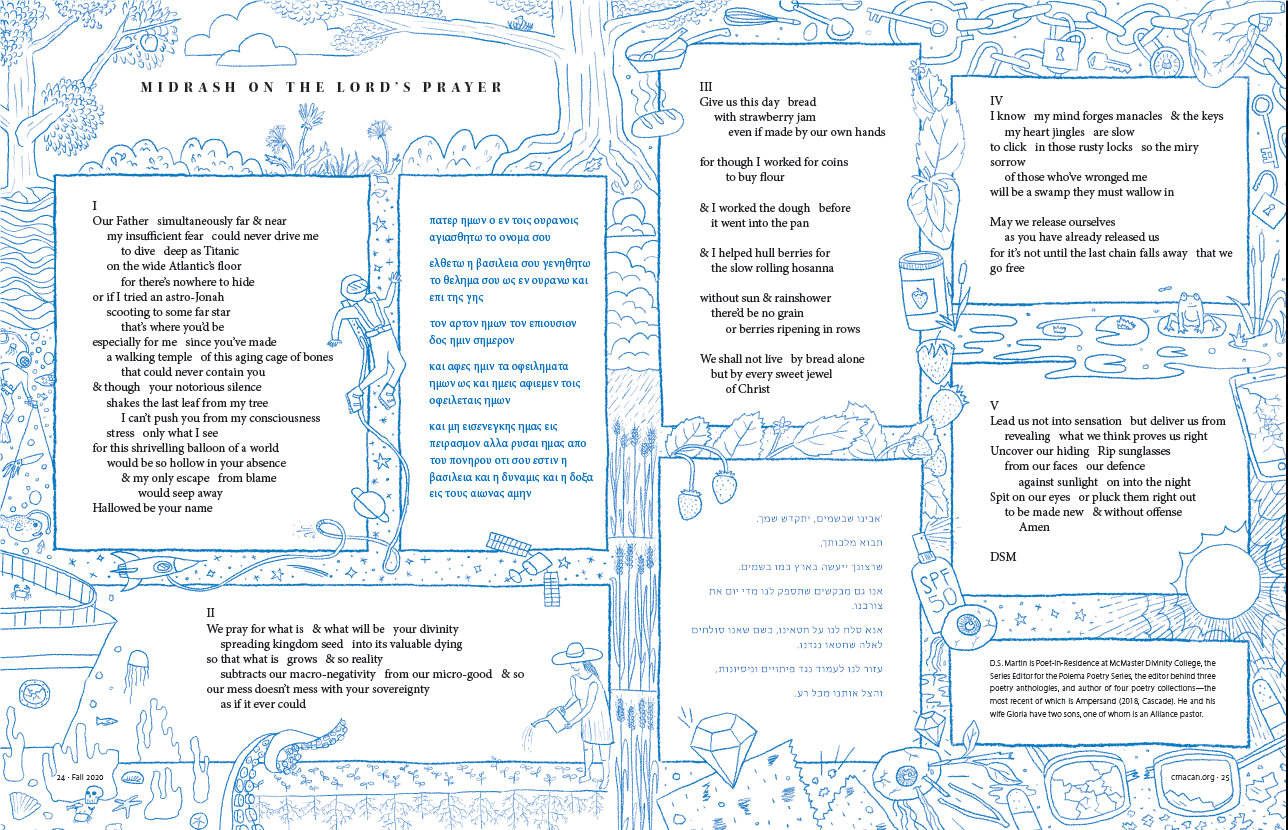Vittoria Colonna (1492—1547) the marchioness of Pescara, is the most successful and renowned female Italian writer of her day. At age 19 she married Fernando Francesco d'Ávalos — who within two years was off to fight the French. The couple rarely saw each other, for he was often engaged as a military captain under Holy Roman Emperor Charles V. When he died in 1525, as a result of battle wounds, she immediately tried to join a convent. She dedicated herself to writing poetry, including a series of poems in his memory.
Henry Wadsworth Longfellow, inspired by the ideal of her grief, wrote a poem which includes the lines:
-------She knew the life-long martyrdom,
---------The weariness, the endless pain
-------Of waiting for some one to come
---------Who nevermore would come again.
She became close friends with Michelangelo in 1536. He made drawings of her, addressed sonnets to her, and they spent a lot of time together. In return, she presented him with a gift manuscript of spiritual poetry.
Colonna was an advocate of religious reform, as demonstrated within her poetry and in the prose meditations she published. Some believe that her popularity began to wane as both she and Michelangelo started expressing the Protestant-flavoured theology of grace.
Although more formal translations exist, I have included Jan Zwicky's more contemporary free translation of the following poem.
from Sonnets for Michelangelo — 31
If this little music, stirring the frail air,
can gather up the spirit,
open it and melt it as it does —
If this mere breeze of sound, this mortal voice,
can lift the heart so,
heal it, startling thought and firing our resolve —
what will that heart do when,
before God in the first and ancient heaven,
it hears the music of all being?
When, struck by truth, it steps forth
in the great wind of that singing?
This post was suggested by my friend Burl Horniachek.
Entry written by D.S. Martin. His latest poetry collection, Conspiracy of Light: Poems Inspired by the Legacy of C.S. Lewis, is available from Wipf & Stock as is his earlier award-winning collection, Poiema.
The Kingdom Poets blog is a resource of poets of the Christian faith, regardless of background; there is no attempt made to assess orthodoxy, but simply to present poets who speak profoundly of faith in God.
KINGDOM POETS
D.S. Martin posts here every Monday. Since February of 2010, Kingdom Poets has grown to become an extensive archive — from across the centuries, around the world, and varying church backgrounds.
Contact: don@dsmartin.ca
Contact: don@dsmartin.ca
About Me

- D.S. Martin
- D.S. Martin's books include: Angelicus (2021), Ampersand (2018), Conspiracy of Light: Poems Inspired by the Legacy of C.S. Lewis (2013), Poiema (2008) and the chapbook, So The Moon Would Not Be Swallowed (2007). He is the Series Editor for the Poiema Poetry Series from Cascade Books, and Poet-in-Residence at McMaster Divinity College.
THE TURNING ASIDE (click cover)
Pages
The Poiema Poetry Series
D.S. Martin is the Series Editor for this series from Cascade Books. Click here for the latest.
Search This Blog
Alpha Index A-B
- Joseph Addison(2)
- Anna Akhmatova(2)
- Susan Alexander
- Dante Alighieri(2)
- Gillian Allnutt
- Julia Alvarez
- Ambrose of Milan
- Chris Anderson
- Sophia Andresen(2)
- Maya Angelou
- Anselm of Canterbury
- Asaph
- Thomas Aquinas
- Cliff Ashby
- Anne Askew
- W.H. Auden(2)
- Margaret Avison(2)(3)
- William Baer(2)
- Philip James Bailey
- William Baldwin
- Laura Battiferri
- Charles Baudelaire
- Jill Peláez Baumgaertner(2)(3)
- James K. Baxter
- Richard Baxter
- Doug Beardsley
- Bruce Beasley
- John Beaumont
- Joseph Beaumont
- Gustavo Adolfo Bécquer
- Hilaire Belloc
- The Beowulf Poet
- Bernard of Clairvaux(2)
- Daniel Berrigan
- Wendell Berry(2)(3)
- John Berryman(2)
- Ursula Bethell(2)
- John Betjeman(2)(3)
- Elizabeth Bishop
- William Blake(2)(3)
- Veniamin Blazhenny
- Marianne Bluger
- Boethius
- Dietrich Bonhoeffer
- Euros Bowen
- Anne Bradstreet(2)
- Bedřich Bridel
- Robert Bridges(2)
- Philip Britts
- Joseph Brodsky(2)
- Anne Brontë(2)
- Charlotte Brontë(2)
- Emily Brontë(2)
- George Mackay Brown(2)
- Elizabeth Barrett Browning(2)(3)(4)
- Robert Browning(2)(3)
- Johan Nordahl Brun
- Ashley Bryan
- William Cullen Bryant
- Frederick Buechner
- John Bunyan
- Mark S. Burrows
- Jesse Keith Butler
Alpha Index C-D
- Cædmon
- Scott Cairns(2)(3)
- Pedro Calderón de la Barca
- Luis Vaz de Camões
- Tommaso Campanella
- Ernesto Cardenal(2)
- Julia A. Carney
- Abigail Carroll(2)
- Rosalia de Castro
- Catherine of Siena
- Charles Causley
- Catherine Chandler
- Danielle Chapman
- Thomas Chatterton
- Geoffrey Chaucer
- Angelico Chavez
- G.K. Chesterton(2)(3)
- Kelly Cherry
- Susanna Childress
- Agatha Christie
- Amy Clampitt
- John Clare(2)
- Jeremy Clarke
- Paul Claudel
- Jane Tyson Clement
- Clement of Alexandria
- Clement of Rome
- Jack Clemo
- Lucille Clifton(2)
- Mary Elizabeth Coleridge
- Samuel Taylor Coleridge(2)
- Vittoria Colonna
- Columba of Iona
- Tony Conran
- Peter Cooley
- Maryann Corbett
- Robert Cording(2)
- Pierre Corneille
- Joseph Cotter
- Susan Cowger(2)
- William Cowper(2)
- Pamela Cranston
- Richard Crashaw(2)
- Barbara Crooker(2)(3)
- Fanny J. Crosby
- Countee Cullen(2)
- E.E. Cummings
- Stephen Cushman
- Cyrillona
- Zach Czaia
- Pádraig J. Daly(2)
- Rubén Darío
- King David
- Joy Davidman
- Donald Davie
- Pennar Davies
- Brad Davis(2)(3)
- Todd Davis
- Madeline DeFrees(2)
- John F. Deane(2)
- Thomas Dekker
- Pier Giorgio Di Cicco(2)
- Charles Dickens
- Emily Dickinson(2)(3)
- John Ditsky
- John Donne(2)(3)
- Brian Doyle
- Dragan Dragojlović(2)
- The Dream Of The Rood
- John Dryden
- Guillaume de Salluste du Bartas
- Sandra Duguid
- Paul Laurence Dunbar
- William Dunbar
Alpha Index E-I
- Meister Eckhart
- Maura Eichner(2)
- T.S. Eliot(2)(3)(4)
- Ephrem of Edessa
- Joanne Epp(2)
- Kristina Erny
- Ralph Erskine
- William Everson(2)
- Frederick William Faber
- B.H. Fairchild
- John Meade Falkner
- Mildmay Fane
- Leslie Leyland Fields
- Robert Fitzgerald
- Carolyn Forché
- Brett Foster(2)(3)
- Francis of Assisi
- S.Trevor Francis
- Jen Stewart Fueston
- Carla Funk
- Nola Garrett
- David Gascoyne
- Ida Gerhardt
- Dana Gioia(2)
- Diane Glancy(2)
- Luis de Góngora
- H.F. Gould
- Richard Greene
- Jane Greer
- Gregory of Nazianus
- Catharina Regina von Greiffenberg(2)
- Ann Griffiths
- Guido Guinizelli
- Malcolm Guite(2)(3)
- Jeff Gundy
- Gwenallt
- Daffyd ap Gwilym
- Hadewijch
- Donald Hall(2)
- Nathaniel Lee Hansen
- Dave Harrity
- Joseph Hart
- Kevin Hart
- Olav H. Hauge
- Ivan Head
- Seamus Heaney(2)(3)
- John Heath-Stubbs
- Reginald Heber
- Matthew E. Henry
- George Herbert(2)(3)(4)
- Mary Sidney Herbert
- Robert Herrick(2)(3)
- Luann Hiebert
- Hildegard of Bingen(2)
- Geoffrey Hill(2)
- Graham Hillard
- Hugo von Hofmannstal
- Laura Reece Hogan(2)
- David Brendan Hopes
- Gerard Manley Hopkins(2)(3)
- George Moses Horton
- Robert Hudson
- Langston Hughes(2)
- Victor Hugo
- Isaiah
- Sally Ito(2)
Alpha List J-K
- Drew Jackson
- Max Jacob
- Jacopone da Todi
- King James I
- Jean Janzen(2)
- Mark Jarman(2)
- David Lyle Jeffrey
- Rod Jellema(2)
- Elizabeth Jennings(2)(3)
- John of Damascus
- John of the Cross
- Fenton Johnson
- Lionel Johnson
- Pauline Johnson(2)
- Samuel Johnson
- George Johnston
- Gordon Johnston
- John the Apostle
- William Jolliff
- Bobi Jones
- David Jones(2)
- Richard Jones(2)
- Ben Jonson(2)
- Juana Ines de la Cruz
- Jukichi Yagi
- A.M. Juster
- Alexis Kagame
- Anna Kamieñska
- Mary Karr(2)
- Julia Spicher Kasdorf(2)
- Patrick Kavanagh(2)
- John Keble
- Margaret Kellermann
- Thomas á Kempis
- Thomas Ken
- Jane Kenyon(2)(3)
- Aleksey Khomyakov
- Søren Kierkegaard
- Kim Hyunseung
- Henry King
- Jane King
- Thomas Kingo
- Charles Kingsley(2)
- Sarah Klassen(2)(3)
- Daniel Klawitter
- Laurie Klein (2)
- Ralph Knevet
- Edvard Kocbek
- Jan Kochanowski
- Philip C. Kolin(2)
- Pavel Kolmačka
- Ku Sang
- Afua Kuma
- Theophilus Kwek
Alpha Index L-M
- Paul Lake
- Alphonse de Lamartine
- William Langland
- Andrew Lansdown(2)
- Aemilia Lanyer
- Sarah Law
- Robert Lax
- Sydney Lea(2)
- John Leax(2)
- Aaron Lee
- John Robert Lee(2)
- Karen An-hwei Lee(2)
- Li-Young Lee
- Madeleine L'Engle(2)
- Luis de León
- Kenneth Leslie
- Denise Levertov(2)(3)(4)
- Peter Levi
- C.S. Lewis(2)(3)
- Gwyneth Lewis
- Li Bifeng
- Li Hao
- Vachel Lindsay
- Anne Locke
- Henry Wadsworth Longfellow(2)
- Robert Lowry
- Dulce María Loynaz
- Luke (Joseph A. Brown)
- Martin Luther(2)
- Mario Luzi
- John Lydgate
- Thomas Lynch
- George MacDonald(2)
- Marjorie Maddox
- Jennifer Maier
- Hannah Main-van der Kamp
- Osip Mandelstam
- Sergiu Mandinescu
- Maurice Manning
- Paul Mariani(2)(3)
- Svetlana Marisova
- Andrew Marvell(2)
- John Masefield
- Cotton Mather
- George Matheson
- Evelyn Mattern
- James McAuley(2)
- Janet McCann
- Susan McCaslin
- Shane McCrae
- Walt McDonald
- Marilyn Chandler McEntyre
- Claude McKay
- Elizabeth Melville
- Thomas Merton(2)
- Philip Metres
- Alice Meynell
- Nontsizi Mgqwetho
- Michelangelo
- Adam Mickiewicz
- John Milbank
- Calvin Miller
- Vassar Miller(2)
- Wilmer Mills
- Czeslaw Milosz(2)
- John Milton(2)(3)
- Gabriela Mistral
- James Montgomery
- Lucy Maud Montgomery
- Julie L. Moore(2)
- Marianne Moore(2)
- Thomas Moore
- Pamela Mordecai
- Eduard Mörike
- A.F. Moritz
- Annabelle Moseley
- Moses
- Edwin Muir(2)(3)
- Les Murray(2)(3)
- Paul Murray
- Benjamin Myers
- Jason Myers
Alpha Index N-R
- Marguerite de Navarre
- Marilyn Nelson(2)
- Muriel Nelson
- Amy Nemecek
- Jae Newman
- John Henry Newman
- John Newton
- Norman Nicholson(2)
- Mark A. Noll
- Miho Nonaka
- John Norris
- Kathleen Norris(2)
- Cyprian Kamil Norwid
- Novalis
- Alfred Noyes
- O Antiphons
- Angela Alaimo O’Donnell
- John O’Donnell
- Mary Oliver(2)(3)
- Micheal O'Siadhail(2)
- Richard Osler
- Tadhg Gaelach Ó Súilleabháin
- Wilfred Owen
- Eric Pankey
- Pantycelyn
- Jay Parini
- Boris Pasternak
- Evangeline Paterson(2)
- Coventry Patmore(2)
- Alan Paton
- Patrick of Ireland
- Patrick’s Rune
- Barbara Colebrook Peace
- The Pearl Poet
- Charles Péguy
- Eugene H. Peterson(2)
- Petrarch(2)
- Marjorie Pickthall
- Edith Lovejoy Pierce
- János Pilinszky
- F.W. Pitt
- Ruth Pitter(2)
- Joseph Mary Plunkett
- John Poch
- Alexander Pope(2)
- Anne Porter(2)(3)
- Marie J. Post
- David E. Poston
- Adélia Prado(2)
- Aurelius Prudentius
- Francis Quarles
- Salvatore Quasimodo
- Paul Quenon
- Francisco de Quevedo
- Miklós Radnóti
- Walter Raleigh
- Shann Ray
- Jennifer Reeser
- John Reibetanz
- Jacobus Revius
- Charles G.D. Roberts
- Michael Symmons Roberts(2)(3)
- Jenny Robertson
- Edwin Arlington Robinson
- W.R. Rodgers
- Romanos the Melodist
- Óscar Romero
- Pierre de Ronsard
- Elizabeth Rooney
- Christina Rossetti(2)(3)(4)
- Dante Gabriel Rossetti
- Juan Ruiz
- Tania Runyan(2)(3)
Alpha Index S-Z
- Nicholas Samaras(2)
- Charles Sangster
- Siegfried Sassoon
- Vedanyakam Sastri
- Dorothy L. Sayers
- Jane Clark Scharl
- Angeline Schellenberg(2)
- David Scott
- F.R. Scott(2)
- Léopold Sédar Senghor
- Martha Serpas(2)
- William Shakespeare(2)
- Luci Shaw(2)(3)
- Robert B. Shaw
- Edward Shillito
- Betsy Sholl
- Philip Sidney
- Javier Sicilia
- Robert Siegel(2)(3)
- Angelus Silesius
- Anya Krugovoy Silver(2)(3)
- Simeon the New Theologian
- C.H. Sisson
- Edith Sitwell
- John Slater(2)
- Christopher Smart
- A.J.M. Smith
- Gerard Smyth
- Edith Södergran
- Vladimir Solovyov
- Aleksandr Solzhenitsyn
- Sons of Korah
- Marin Sorescu
- Anne Southwell
- Robert Southwell(2)
- Lisa Russ Spaar
- Horatio Gates Spafford
- Edmund Spenser(2)
- William Stafford(2)
- Sofia Starnes
- Marjorie Stelmach(2)
- Kenneth Steven
- Wallace Stevens
- Jack Stewart
- Harriet Beecher Stowe
- Jacob Stratman
- William Strode
- G.A. Studdert Kennedy(2)
- John Suckling
- Sweeney Astray
- Joshua Sylvester
- Margo Swiss(2)
- Mary Szybist
- John Banister Tabb
- Novica Tadić(2)
- Torquato Tasso
- Allen Tate
- Edward Taylor
- John Taylor
- Alfred Tennyson(2)
- Teresa of Avila
- John Terpstra(2)(3)
- Gerhard Tersteegen
- Theophan the Recluse
- Dylan Thomas
- R.S. Thomas(2)(3)
- Thomas of Celano
- Dunstan Thompson
- Francis Thompson(2)
- Edwin Thumboo
- Narayan Vaman Tilak
- J.R.R. Tolkien
- Thomas Traherne(2)(3)
- Tomas Tranströmer(2)
- R.C. Trench
- Diane Tucker
- Frederick Goddard Tuckerman
- Steve Turner
- Katharine Tynan
- Anne Lee Tzu Pheng
- Giuseppe Ungaretti
- John Updike
- Sheldon Vanauken
- Jean Vanier
- Henry Vaughan(2)(3)
- Paul Verlaine
- François Villon
- Brian Volck
- Joost van den Vondel
- Roger Wagner
- G.C. Waldrep
- Jeanne Murray Walker(2)
- Edmund Waller
- Chad Walsh
- Izaak Walton
- Walter Wangerin Jr.(2)
- Vernon Watkins
- Rowland Watkyns
- Isaac Watts
- Ann Weems
- Franz Werfel
- Charles Wesley(2)
- Phillis Wheatley(2)
- John Wheelwright
- George Whipple(2)
- John Greenleaf Whittier(2)
- Richard Wilbur(2)
- Oscar Wilde
- Claude Wilkinson
- Mischa Willett
- Charles Williams
- Rowan Williams(2)
- Waldo Williams
- William Carlos Williams
- Paul Willis(2)(3)(4)
- Christian Wiman(2)
- Karol Wojtyla
- David Wright
- Franz Wright(2)
- Wu Li
- Pamela S. Wynn
- Marly Youmans
- Yun Tongju
- Adam Zagajewski(2)
- Ed Zahniser
- Irene Zimmerman
- James A. Zoller
Blog Archive
Followers
Popular Posts
-
Patrick’s Rune was written by an unidentified author, in the ancient Bearla Feine Irish dialect, as part of a longer piece called “St. Patri...
-
Norman Nicholson (1914—1987) is an English poet, born in the town of Millom, Cumbria, where he lived his entire life—with the exception of a...
-
Vassar Miller (1924—1998) is the author of ten poetry books, including If I Had Wheels or Love (1991) her collected poems. She has a strong...
-
Asaph has had twelve of the psalms in the Old Testament Psalter (Psalms 50 and 73-83) attributed to him. He was one of King David's chie...
-
Petrarch (Fransesco Petrarca) (1304–1374) is an Italian poet who has significantly influenced western verse. His sonnets were particularly a...
-
Buile Suibhne is an ancient Irish tale of a king, often referred to as Mad Sweeney, who is driven insane by the curse of St. Ronan. Suibhne&...
-
Sandra Duguid grew up in western New York State. For twenty years she taught literature, composition and creative writing at colleges in the...
-
Paul Mariani is a contemporary American poet, who was born in New York City. He holds a Chair in Poetry at Boston College, and is known for ...
-
John Meade Falkner (1858—1922) is a British novelist and poet. He was also quite successful in business, becoming the chair of the arms manu...
-
Sarah Klassen is a Manitoba poet and writer who has won several awards, including the Gerald Lampert Award for her debut collection Journey ...
Recognition

Kingdom Poets was selected for the Liebster Award in 2013 by Carolyn Wilker, and for the Top 25 Christian Poetry Blogs by Feedspot in 2018.

















